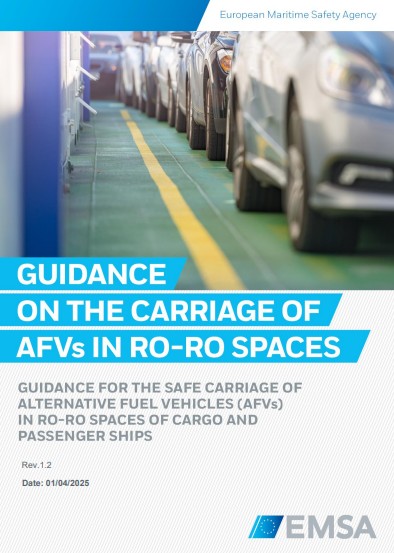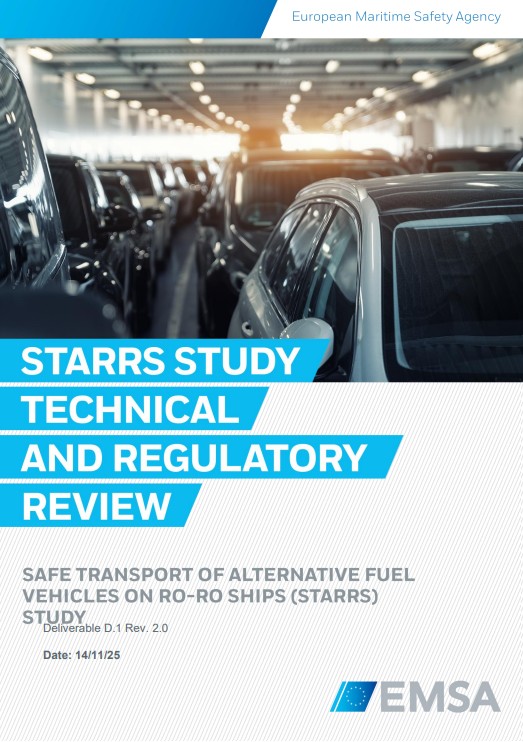
Emission targets apply not only to maritime transport but also to other transport modes. Land transport, notably trucks and cars, will have to steadily evolve as well. This means that, at an increasing rate, both passenger and cargo ships will need to carry AFV onboard and they will have to be adapted to the associated emerging safety challenges.
This topic has become a serious safety concern given the enormous growth o the number of alternative fuelled vehicles (AFV), particularly electric and hybrid-electric, combined with the high uncertainty of the characteristics and potential fire risks of these vehicles.
Moving towards sustainable transport also means that the transportation of AFVs onboard ships is performed at a high safety standard, mitigating risks to the crew, the ship and the environment.
In 2022, EMSA published high level guidance to assist relevant authorities and stakeholders in ensuring that the carriage of AFV is conducted safely.
Ongoing research is tackling relevant issues such as the effectiveness of fixed firefighting solutions such as those of inert gas systems and high expansion foam systems against battery fires, means for early detection of thermal runaway, mitigation of re-ignition risk, fire propagation, explosion risk, training and operation procedures for safe handling of these fires. In 2025, EMSA contracted a new study to support real scale testing on these relevant issues, “Safe Transport of AFVs on Ro-Ro Ships” (STARRS) study.
|
 Guidance on the carriage of AFVs in RO-RO spaces Guidance on the carriage of AFVs in RO-RO spaces
The EMSA Guidance on the Carriage of AFVs in Ro-Ro Spaces was developed with the support of a group of experts from the European Commission, EU Member States and the industry. The Guidance is intended to assist relevant authorities and stakeholders in ensuring that the carriage of alternatively fuelled vehicles onboard ships is conducted safely and with due regard for protection of the environment. It can be applied to new and existing ships.
The Guidance might be updated in the mid-term according to the experience gathered and/or should new relevant input from studies or stakeholders be available. EMSA would welcome any report/comment coming from either studies or the experience in applying this Guidance.
[Read more]
|
|
 Safe Transport of Alternative Fuel Vehicles on Ro-Ro Ships (STARSS) study Safe Transport of Alternative Fuel Vehicles on Ro-Ro Ships (STARSS) study
The European Maritime Safety Agency (EMSA) STARRS study main objective is to provide recommendations for further industry guidance and input to the development of International Maritime Organization (IMO) relevant instruments. The study is conducted by Bureau Veritas and RISE Research Institutes of Sweden.
The first report provides an overview of the regulatory landscape governing the safe transportation of AFVs, including a review of regulations, rules and guidelines across both maritime and non-maritime domains. Then, the state-of-the-art of experimental findings on fire safety of AFVs in ro-ro spaces, as well as prior research on numerical modelling and simulations, were reviewed and summarized. Finally, conclusions from the review are presented, including a summary of the scientific and technical knowledge identified in the form of a mapping. The results of the reviews will serve as technical justification for the development of recommendations in the upcoming parts of the STARRS study.
[Read more]
|



